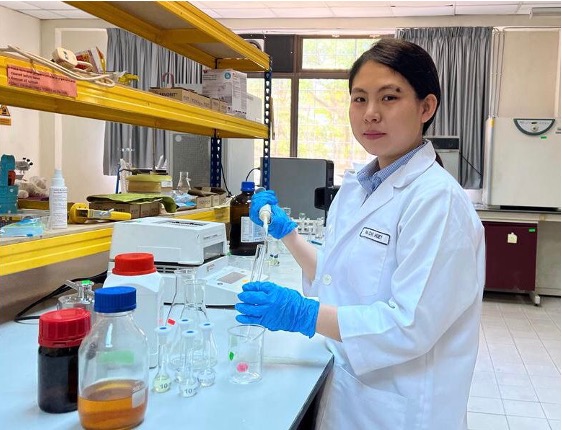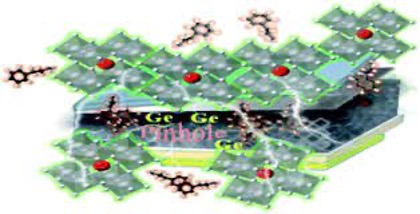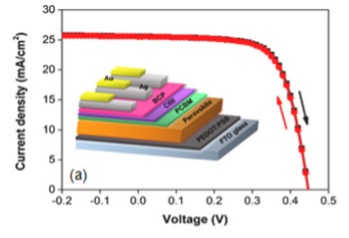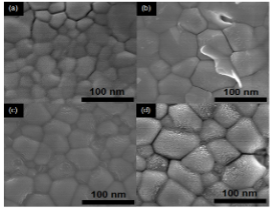Research News
"Understanding the optoelectronic behavior of carbon-free nanomaterials is essential to meet future needs for global sustainability."
Welcoming a New Young Researcher to The Faculty of Engineering
The Faculty of Engineering is delighted to welcome Dr. Ng Chi Huey to the Oil and Gas Program as a Senior Lecturer at Universiti Malaysia Sabah. After receiving her Ph.D. from Universiti Putra Malaysia and Kyushu Institute of Technology, Dr. Ng worked as a postdoctoral researcher in Japan, where her experience with well-resourced laboratories and cutting-edge technologies helped her develop linkages, scientific discussions, and long-term collaborations with researchers in Japan.

Dr. Ng Chi Huey

Graphical illustration of the addition of dopants passivating the pinholes.

Current-voltage curve of FMSGI(5).

(a) FMSI (w/o SnF2), (b) FMSI(0), (c) FMSGI(5), and (d) FMSGI(10).
Dr. Ng is a materials chemist who is actively involved in research focusing on the rational design of robust hybrid nanocomposites for energy-related applications in energy conversion, energy storage, and environmental remediation towards a sustainable future. The continuous increase in environmental concerns has urgently necessitated the deployment of new carbon-free energy sources in daily applications. Dr. Ng believes that a researcher’s role is to provide solutions that mitigate and alleviate these environmental issues.
In shaping a clean environment, comprehensive approaches have been ongoing to realize zero-carbon emissions. One important approach is that of solar technologies. As an alternative to conventional silicon solar panels, which are expensive, tedious to manufacture, and energy-hungry, Dr. Ng has harnessed the tunability of perovskites to create semiconductors with similar properties.
Dr. Ng's expertise lies in nanocomposites designed for the fabrication of energy storage and conversion devices. She has synthesized potent nanocomposite materials through various wet-chemistry routes, and has performed various electrochemical analyses to understand the charge carrier dynamics and structural and electronic defect states of the synthesized nanocomposites for efficient charge carrier transportation and energy production. As a materials chemist, Dr. Ng's research studies the fundamental properties of a material because its malleability gives rise to desirable dimensions (one-dimensional, two-dimensional, and three-dimensional) and morphological structural formation for a specific application.
From one of her research works published in Nano Energy, a lead-free perovskite solar cell was fabricated under humidity-controlled conditions in a glove box by spin coating the light-active material onto a glass substrate. Dr. Ng then performed various electrochemical analyses which showed that adding dopants into the perovskite precursor is a passivating agent to passivate the pinholes and defective states, and consequently improving carrier dynamics and photo-conversion efficiency. Apart from focusing on energy storage and conversion technologies, Dr. Ng is currently looking into developing green adsorbents derived from cheap and renewable resources which aim to contribute to global sustainability.
As a young researcher, Dr. Ng aims to receive national and international research funding and grants to perform her experimental works at UMS and also to search for more research collaboration opportunities with university members, private sectors, and international institutes worldwide. She hopes to further contribute to the faculty and to promote the university to an international level.
Further reading:
https://doi.org/10.1016/j.nanoen.2019.01.026
https://doi.org/10.1039/C9TA11989B



